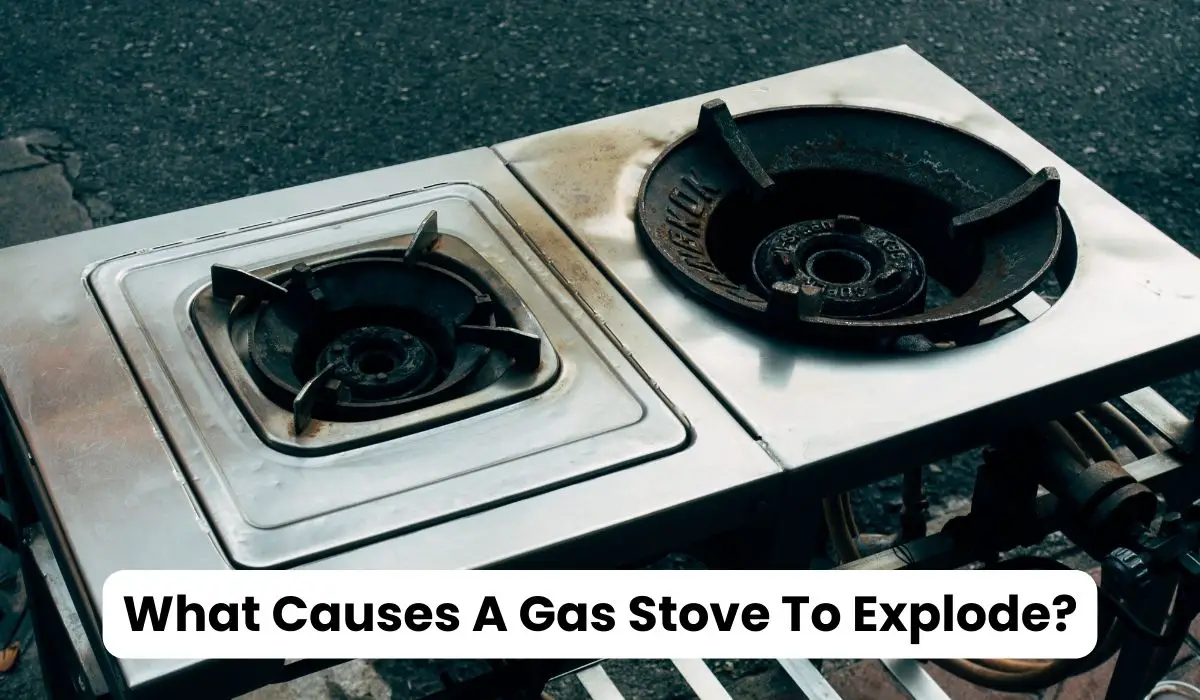Gas stoves are a common sight in kitchens worldwide, prized for their precise heat control and efficiency. However, lurking behind their utility is a potential danger that, though rare, can have devastating consequences: explosions. Understanding the causes of these explosions is crucial for ensuring kitchen safety.
In this article, we will delve into the various factors that can turn a regular cooking day into a hazardous one, examining everything from improper installation and maintenance to gas leaks and faulty equipment. Our goal is to shed light on this serious issue, helping you make informed decisions to keep your home safe and secure.
So, Let’s start.
Table of Contents
How Do Gas Stoves Work?
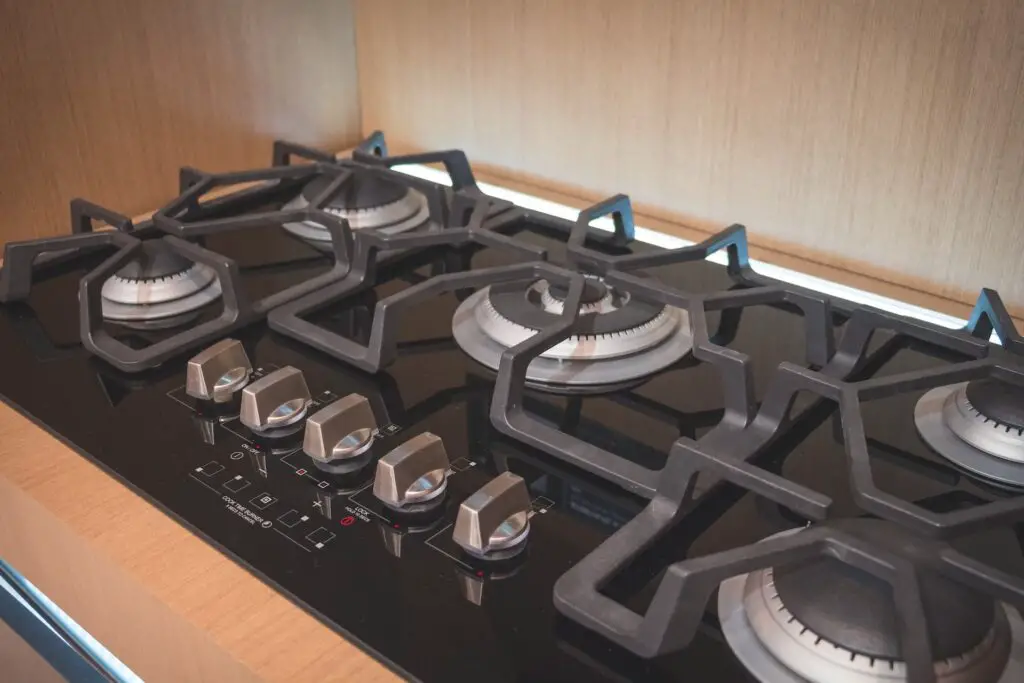
Gas stoves, a staple in many kitchens, operate on a simple yet fascinating principle. They harness the power of combustible gases, such as propane or natural gas, transforming them into the heat necessary for cooking. The heart of a gas stove’s operation lies in its ability to control and utilize this gas to create a consistent cooking flame.
When you twist the knob of a gas stove, it’s like opening the gates for the gas to flow. This gas then travels through dedicated channels, reaching the burners where it awaits its moment of ignition. A spark, often produced by an electric igniter or a continuously burning pilot light, ignites the gas. This controlled combustion process results in the familiar blue flame used for cooking.
The burners, the most visible part of the stove, come in various designs – from simple metal grids to advanced configurations. They are meticulously engineered to ensure even flame distribution and optimal heat for cooking. Beneath the surface, the regulator plays a critical role. This component acts as the guardian of gas flow, maintaining the right pressure and volume of gas reaching the burners. A malfunctioning regulator can lead to uneven cooking or, in worse cases, safety hazards.
Equally important are the gas lines, the hidden veins of the stove, channelling gas from its source to the burners. These lines must be in top condition to avoid risks like leaks or blockages, which can have serious implications.
The installation of a gas stove is not a DIY task. It requires precision, akin to putting together a complex puzzle where every piece must align perfectly. This is why professional installation is not just recommended but essential. Certified technicians ensure that every connection is secure, every line is leak-free, and the stove operates as intended.
Their expertise lays the foundation for not only the stove’s performance but also for the safety and well-being of its users. This meticulous process underscores the importance of professional handling, providing reassurance in the safe and effective operation of the gas stove.
What Causes A Gas Stove To Explode? [15 Reasons]
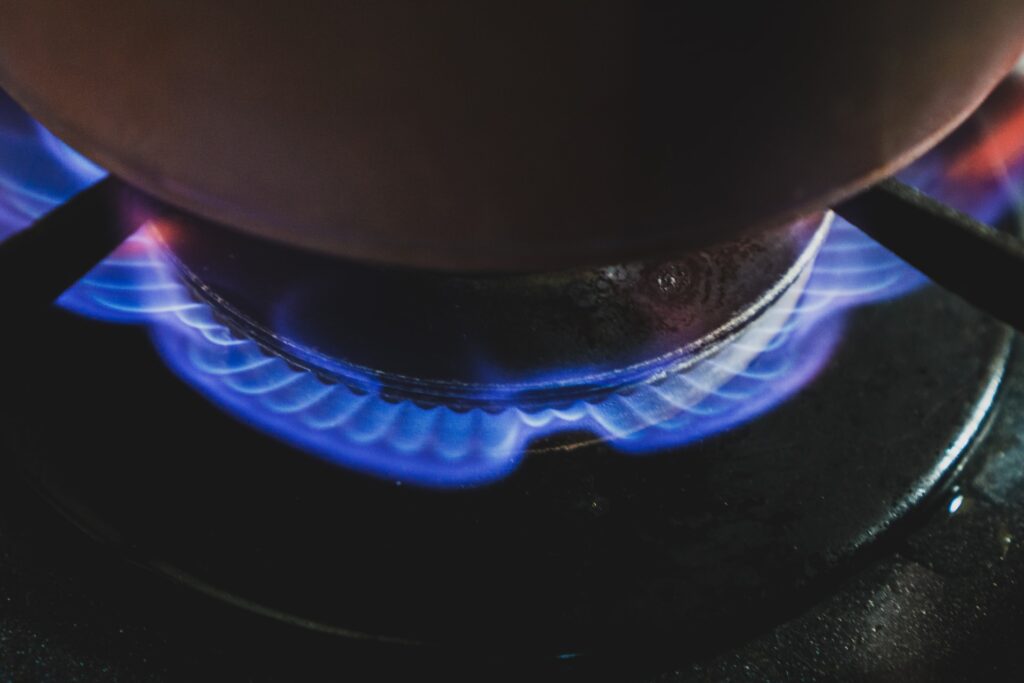
Gas stoves, while generally safe and reliable, can pose serious dangers if not used or maintained properly. Understanding what can cause a gas stove to explode is crucial for preventing accidents. Here are 15 reasons that contribute to such hazardous situations:
1. Gas Leaks
Gas leaks are the primary culprits behind gas stove explosions. They occur when gas escapes from the stove’s components, such as hoses or connections, due to wear and tear, loose fittings, or corrosion. This leaking gas can accumulate in the kitchen, and when it comes into contact with a spark or flame, it ignites, leading to an explosion. Regular checks for the smell of gas, which has an added odorant for detection, and immediate action if a leak is suspected are crucial for safety.
2. Improper Installation
A gas stove that’s incorrectly installed poses a significant risk. This usually happens when non-professionals attempt to install or modify gas lines and connections. Improper installation can lead to loose connections, incorrect gas pressure, or misaligned parts, all of which can cause gas leaks. Ensuring that a qualified technician installs and regularly services the gas stove is essential for preventing explosions. Additionally, understanding the proper venting requirements for a gas stove is crucial for safe operation.
3. Faulty Regulators
The regulator controls the gas pressure flowing to the burners. If it malfunctions, it can allow too much gas to flow through, creating a highly flammable environment. This excessive gas flow can lead to an accumulation of gas around the stove, which, when ignited, results in an explosion. Regular servicing and replacing old regulators are necessary preventive measures.
4. Obstructed Gas Lines
Blockages in the gas lines can be caused by debris, rust, or external damage. These obstructions hinder the proper flow of gas, leading to pressure build-up within the stove. When the gas eventually finds a way out, it can escape rapidly, increasing the risk of an explosion. Regular inspection of gas lines for any signs of damage or blockage is important.
5. Worn Out Hoses
Over time, the flexible hoses that connect the gas supply to the stove can deteriorate. They may develop cracks, leading to gas leaks. These hoses are often made of materials that can degrade, especially in the presence of heat or chemicals. It’s important to regularly inspect these hoses for signs of wear and tear and replace them as needed.
6. Poor Maintenance
Lack of regular maintenance can lead to various problems, such as clogged burners, deteriorating seals, and unnoticed leaks. Regular maintenance by a professional can identify and rectify these issues before they become hazardous. This includes cleaning the burners, checking the seals, and ensuring all connections are tight.
7. Delayed Ignition
This happens when the gas valve is turned on, but there’s a delay before the gas ignites. During this delay, gas accumulates in the air. When it finally ignites, the large amount of gas burns rapidly, potentially causing an explosion. Keeping the burners clean and ensuring the ignition system is functioning correctly can prevent delayed ignition.
8. Overfilled Pots and Pans
When cooking with too much oil or liquid, it can overflow and extinguish the burner flame while the gas is still on. This leads to gas accumulation and, if not addressed promptly, can result in an explosion when the gas comes into contact with a heat source. It’s important to use appropriately sized cookware and to be vigilant while cooking.
9. Ignition Source Near Gas Leak
If there’s a gas leak and an ignition source like a spark, flame, or even an electrical appliance is nearby, it can ignite the gas. This is why it’s crucial to keep flammable materials away from the stove and to avoid using electrical devices near a suspected gas leak.
10. Inadequate Ventilation
Kitchens need good ventilation to ensure any leaked gas disperses and doesn’t accumulate. Without proper ventilation, even a small amount of leaked gas can build up and create an explosive atmosphere. Ensuring that the kitchen has adequate ventilation, including working vents and windows, is vital.
11. Improper Use of Stove
Using the stove for non-cooking purposes, like heating the room, can lead to overheating and gas accumulation, especially if the stove is left unattended. It’s important to use the gas stove solely for its intended purpose.
12. Ageing Stove Components
Over time, components of a gas stove can wear out. Valves, knobs, and seals can deteriorate, leading to gas leaks. Regularly checking and replacing old parts can prevent this.
13. DIY Repairs
Attempting to repair a gas stove without proper knowledge or tools can lead to mistakes like improper fittings or damaged components, increasing the risk of gas leaks and explosions. It’s always safer to rely on professional technicians for repairs.
14. High Gas Pressure
If the pressure in the gas line is too high, it can lead to excessive gas flow to the burners, increasing the risk of an explosion. A professional technician can check and adjust the pressure to the correct level.
15. Spills and Debris on the Stove
Spills and debris can block the burner ports and lead to uneven gas flow, increasing the risk of gas accumulation and explosion. To understand more about such risks, you can read about whether electric stoves can explode. Regular cleaning of the stove surface and burners is essential for safe operation.
How To Prevent Gas Stove Explosions:
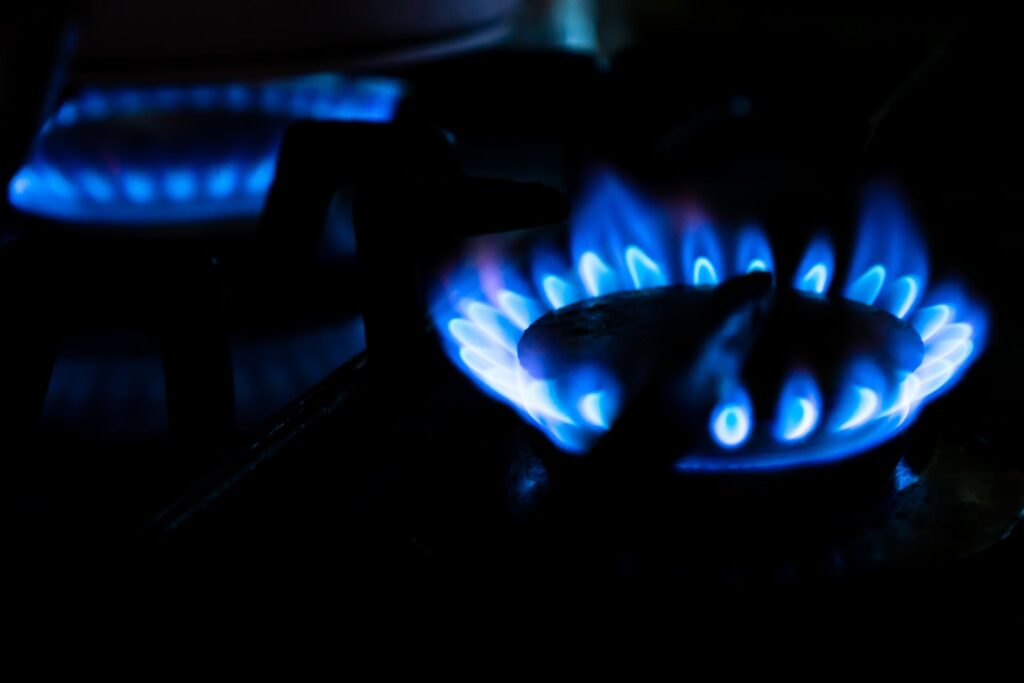
Gas stove explosions, while rare, can be devastating. Ensuring safety in the kitchen is paramount. There are several steps that homeowners and renters alike can take to minimize the risks associated with gas stoves.
1. Regular Maintenance Checks
A key aspect of preventing gas stove explosions is regular maintenance. It’s crucial to have your stove inspected by a professional at least once a year. These experts can identify potential hazards like gas leaks or faulty connections that might not be obvious to the untrained eye. Additionally, suppose you notice any unusual signs, such as a strange smell or a burner flame that looks different than usual (it should be blue with a small yellow tip). In that case, it’s important to contact a professional immediately.
2. Installing Gas Detectors
Installing gas detectors in your home, especially near the kitchen, can provide an early warning system for gas leaks. These detectors are designed to alert you when they sense a high concentration of gas, allowing you to take action before a dangerous situation develops. Make sure to test these detectors regularly and change their batteries as needed.
3. Proper Use and Handling
Understanding how to use your gas stove properly is crucial. Always make sure the burner has ignited when you turn on the gas. If it doesn’t ignite, turn it off, wait a few minutes to let the gas dissipate, and then try again. Never leave the stove unattended while it’s on, and keep flammable materials like dish towels, paper products, and curtains away from the stove area.
4. Immediate Action on Gas Leak Suspicions
If you suspect a gas leak, act immediately. Do not attempt to find the source of the leak yourself. Avoid creating any sparks or flames – this means not using matches, lighters, electrical switches, or even cell phones near the suspected leak. Open windows and doors to ventilate the area, and leave the house immediately. Once you’re in a safe location, call your gas company or emergency services.
5. Educating Household Members
Ensure that everyone in your household understands how to use the gas stove safely. This includes knowing how to turn it off and what to do in case of a suspected gas leak. Children, in particular, should be taught the dangers of playing near or with the stove.
6. Proper Installation
If you’re installing a new gas stove or moving into a new home, make sure a qualified professional installs the stove. Incorrect installation can lead to gas leaks and other hazardous situations.
7. Keeping the Area Clean
Regularly clean your stove and the area around it. Food particles and grease can accumulate, which not only affects the stove’s performance but can also be a fire hazard. However, avoid using too much water or cleaner near the gas line connections to prevent corrosion or damage.
8. Understanding the Signs of a Faulty Stove
Be aware of the signs that your gas stove may need repairs. This includes uneven flames, a yellow or orange flame (instead of blue), a persistent gas smell when the stove is off, and difficulty lighting the burners. If you notice any of these signs, it’s important to call a professional for a checkup.
9. Safe Cooking Practices
Always stay in the kitchen while cooking, especially when using oil or cooking at high temperatures. Keep pot handles turned inward to prevent accidental spills. Also, make sure your kitchen is equipped with a fire extinguisher suitable for grease fires.
Preventing gas stove explosions is largely about being proactive. Regular maintenance, proper usage, and awareness are key to ensuring your kitchen remains a safe environment. By following these guidelines, you can significantly reduce the risk of a gas-related incident in your home.
Signs That May Indicate A Gas Leak:
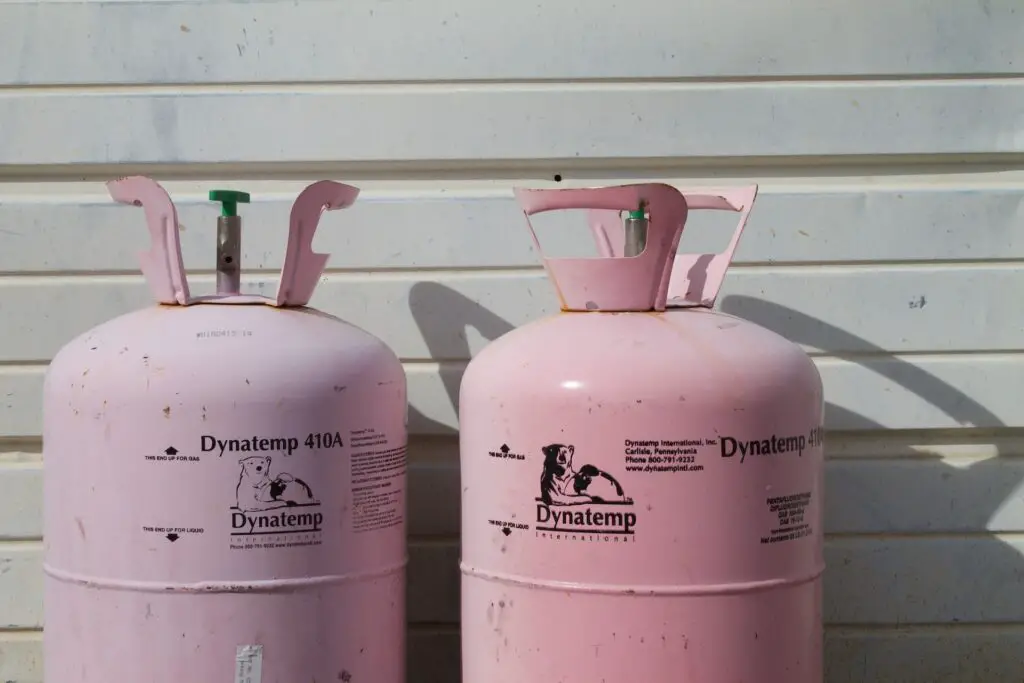
Gas leaks in homes or businesses are serious safety concerns that require immediate attention. Recognizing the signs of a gas leak can be lifesaving, as it enables you to act quickly to prevent potential disasters. Here are key indicators that may suggest the presence of a gas leak:
1. Distinctive Odor
Natural gas is odourless in its natural state. However, for safety reasons, a sulphur-like scent, often compared to rotten eggs, is added to help detect leaks. If you notice this unusual smell, it’s a strong indication that there might be a gas leak.
2. Hissing Sounds
Listen for any unusual hissing or whistling sounds near gas lines or appliances. These sounds could indicate that gas is escaping from a pipe or hose.
3. Dead or Dying Vegetation
If you observe plants, grass, or shrubs dying without an apparent cause, especially in areas above or near gas lines, this could be a sign of a gas leak underground. The escaping gas restricts the oxygen supply to the vegetation, causing it to wither.
4. Visible Air Movement
In the absence of wind, bubbles in standing water or dirt blowing around near a gas line can be a sign of a gas leak. This is particularly noticeable in areas where underground pipes may run.
5. Physical Symptoms
Exposure to natural gas can cause physical symptoms such as dizziness, fatigue, nausea, headaches, and difficulty breathing. If you or others in the vicinity start feeling these symptoms without a clear cause, consider the possibility of a gas leak.
6. Appliance Issues
If gas-powered appliances are not functioning correctly, such as a decrease in efficiency or an unsteady flame, this could indicate a problem with the gas supply, possibly a leak.
7. Gas Bill Spikes
An unexpected increase in your gas bill, despite normal usage, can be a hint of a leak, as more gas is escaping from the system.
If you suspect a gas leak, it is crucial to act promptly and safely. Avoid using electrical switches, mobile phones, or anything that could generate a spark. Open windows and doors to ventilate the area if it’s safe to do so. Evacuate the area immediately and contact emergency services or your gas provider from a safe distance. Remember, safety should always be your top priority.
How Often Do Gas Stoves Explode?
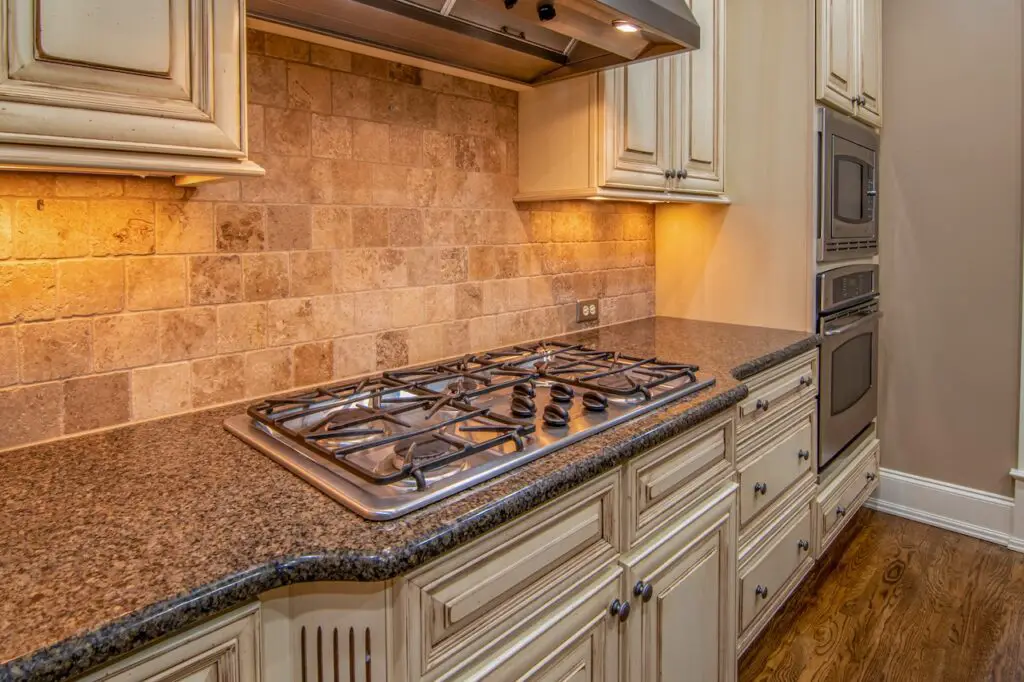
While incidents involving gas stove explosions are relatively uncommon, they remain a significant safety concern. Recent statistics from safety organizations reveal that each year, around 4,200 domestic fires are sparked by the ignition of natural gas. These fires, unfortunately, result in about 40 fatalities annually, underscoring their serious nature.
The frequency of gas leaks, a precursor to potential explosions, is notably high. Fire departments in the United States are called to deal with an average of 340 cases involving natural gas or liquid petroleum Gas leaks daily, though most of these do not lead to fire or explosion. This high incidence rate emphasizes the critical need for regular maintenance and immediate action when detecting signs of gas leaks.
Homeowners can take several steps to minimize the risk associated with gas stoves. It’s essential to conduct routine inspections and upkeep of all gas appliances. Hiring a professional for regular check-ups can ensure that any issues are addressed promptly.
Being aware of gas leak indicators is equally important. The added odour that resembles rotten eggs, unusual hissing noises near gas lines, or unexplained plant wilting can all signal a leak. Understanding the correct response to a gas leak is crucial for safety, including vacating the area, refraining from using any electrical devices, and calling emergency services from a safe location.
In summary, while the likelihood of a gas stove explosion is low, the associated risks are serious. By staying informed about the dangers, recognizing the signs of a leak, and practising safety measures, homeowners can greatly reduce the chances of such incidents and ensure a safer home environment.
What To Do When Your Gas Stove Explodes?
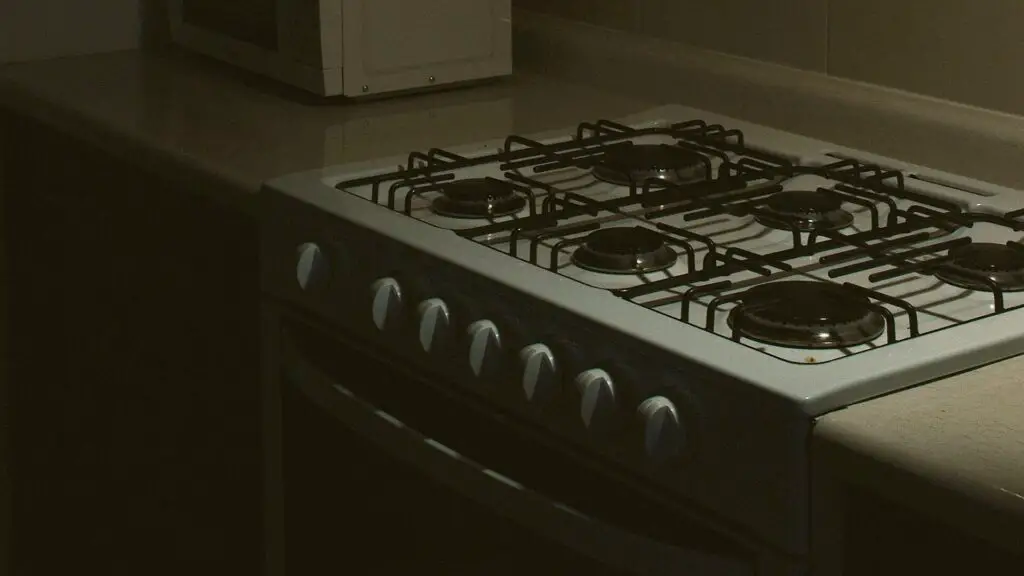
Experiencing a gas stove explosion can be both shocking and dangerous. If you want to ensure your safety and minimize damage, you need to act swiftly and smartly. Here’s what you need to do:
1. Evacuate and Call for Help
Getting everyone out of the house is the first step. Get your belongings and leave immediately; don’t wait. Call 911 or your local emergency services once you are at a safe distance. Professional assistance is essential when dealing with gas explosions since they can cause fires and other hazards.
2. Shut Off the Gas Supply
If it’s safe and you know how, turn off the main gas valve to prevent further leaks. However, prioritize evacuation over this step if the situation seems too risky.
3. Ventilate the Area
Open windows and doors to let out the gas, but only if it’s safe to do so. Avoid creating sparks or flames, such as from cigarettes or electrical switches, as these can ignite the gas.
4. Assess and Treat Injuries
Check yourself and others for injuries. If anyone is hurt, provide first aid if you can and inform emergency responders about the injuries when you call for help.
5. Do Not Re-enter the Building
Stay outside and away from the building until emergency services arrive and declare it safe to enter. There might be hidden dangers like structural damage or lingering gas.
6. Contact Your Gas Company
Inform your gas provider about the incident. They can offer advice, send a technician to inspect the system, and ensure it’s safe before the gas is turned back on.
7. Document the Damage
Once it’s safe, take photos of the damage for insurance purposes. This will be important for your insurance claim.
8. Professional Inspection and Repair
Have a licensed professional inspect and repair your gas stove and gas lines. Please don’t attempt to fix it yourself, as this could be dangerous and might void warranties or insurance policies.
9. Seek Support
An explosion can be traumatic. Don’t hesitate to seek emotional support or counselling for you and your family if needed.
Conclusion:
At the end of this article, we hope to have illuminated the path toward safer kitchen practices, especially when it comes to gas stoves. These culinary cornerstones, while essential for cooking, come with inherent risks that demand our attention and respect.
An explosion, albeit a rare event, carries with it the potential for devastating outcomes. Armed with the knowledge of what causes such incidents, the telltale signs of danger, and the best safety protocols, we’re better equipped to prevent these accidents.
The role of regular upkeep, correct setup, and attentiveness to any unusual indicators cannot be overstated. It’s crucial to remember that in any situation hinting at a gas leak or possible explosion, prioritizing safety is paramount. Swift evacuation and immediate professional assistance are vital steps in safeguarding not just our homes but, more importantly, our lives and those of our loved ones.
FAQs
Why did my gas stove pop?
Your gas stove might pop due to minor gas build-up igniting when the burner is turned on or from moisture in the burner head, creating small steam explosions. It’s usually harmless but indicates a need for cleaning or adjusting the burner. Regular maintenance can prevent such occurrences.
Why does my gas stove backfire?
A backfiring gas stove typically results from an uneven gas-to-air ratio, leading to incomplete combustion. This issue might stem from clogged burner ports or improper gas flow. Regular cleaning and ensuring the burner assembly is correctly aligned can help prevent backfires maintaining a safe and efficient cooking environment.
What causes a gas stove to keep sparking?
Continuous sparking in a gas stove typically occurs when the igniter is dirty or damp, preventing proper ignition. It can also be due to a misaligned burner cap or a faulty ignition switch. Regular cleaning and ensuring the components are correctly positioned usually resolve the issue.
